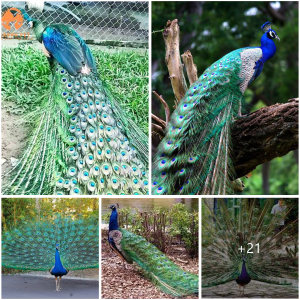American Kennel Club descriptions of dog breeds can read like online dating profiles: The border collie is a workaholic; the German shepherd will put its life on the line for loved ones. Now, in the most comprehensive study of its kind to date, scientists have shown that such distinct breed traits are actually rooted in a dog’s genes. The findings may shed light on human behaviors as well.
“It’s a huge advance,” says Elaine Ostrander, a mammalian geneticist at the National Human Genome Research Institute in Bethesda, Maryland, who was not involved with the work. “It’s a finite number of genes, and a lot of them do make sense.”
When the dog genome was sequenced in 2005, scientists thought they would quickly be able to pin down the genes that give every breed its hallmark personality. But they found so much variation even within a breed that they could never study enough dogs to get meaningful results.
So in the new study, Evan MacLean, a comparative psychologist at the University of Arizona in Tucson, Noah Snyder-Mackler at the University of Washington in Seattle, and colleagues began by looking at behavioral data for about 14,000 dogs from 101 breeds. The analyses come from the Canine Behavioral Assessment & Research Questionnaire (C-BARQ), a sort of pet personality quiz developed by James Serpell, an ethologist at the University of Pennsylvania. C-BARQ asks questions like, “What does your dog do when a stranger comes to the door?” to allow owners to objectively characterize 14 aspects of their pet’s personalities, including trainability, attachment, and aggression. Since the survey was developed in 2003, more than 50,000 owners have participated.
The team matched up these behavioral data for each breed with genetic data about breeds from different sets of dogs. They didn’t look at genetic and behavioral data for individual dogs, but rather averages across a specific breed. In all, the team identified 131 places in a dog’s DNA that may help shape 14 key personality traits. Together, these DNA regions explain about 15% of a dog breed’s personality, with each exerting only a small effect. Trainability, chasing, and a tendency to be aggressive toward strangers were the most highly heritable traits, the scientists report in a paper posted this month on the preprint server bioRxiv.
The locations of these DNA hot spots make sense: Some are within or close to genes tied to aggression in humans, for example, whereas DNA associated with the dog’s level of trainability is found in genes that in humans are associated with intelligence and information processing.
The findings suggest behavior is guided by the same genes in many species, MacLean says. And if, for example, genes underlying anxiety in dogs lead to those same genes in people, that discovery may ultimately lead to better treatments for anxiety-related disorders, Serpell says. “These are the kinds of things we can see in the future.”
Because the genetic and behavioral data come from different sets of dogs, the work cannot link a breed’s specific behavioral tendencies to any one gene. “This paper doesn’t call out any particular breed for its behavior. It relies on behaviors that are found in many breeds,” says Heidi Parker, a genome scientist at the National Human Genome Research Institute who, with Ostrander, pioneered some of the early work on dog genomes.
Thus, for example, Serpell’s behavioral work has shown that pit bulls are aggressive toward other dogs but not people, but this new analysis can’t lead to a DNA test of that behavior. However, Serpell and his colleagues are starting more studies looking at the DNA linked to within-breed variation in behavior, a step in that direction. Such work has been done on a small scale to pinpoint the gene for superfriendly behavior.
Until more of those connections are made, “I am not sure how widely accepted the results will be,” says Robert Wayne, an evolutionary biologist at the University of California, Los Angeles. He and dog genetics expert Elinor Karlsson from the University of Massachusetts Medical School in Worcester point out that this study finds a much bigger role for genetics in shaping behavior than previous studies and so think more work needs to be done to verify the findings.
*Update, 9 December, 1:35 p.m.: This story has been updated to include the contributions of Noah Snyder-Mackler.





